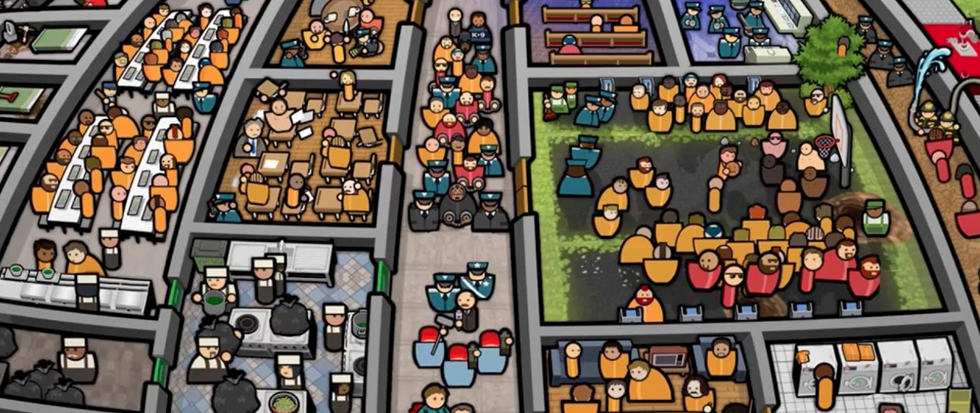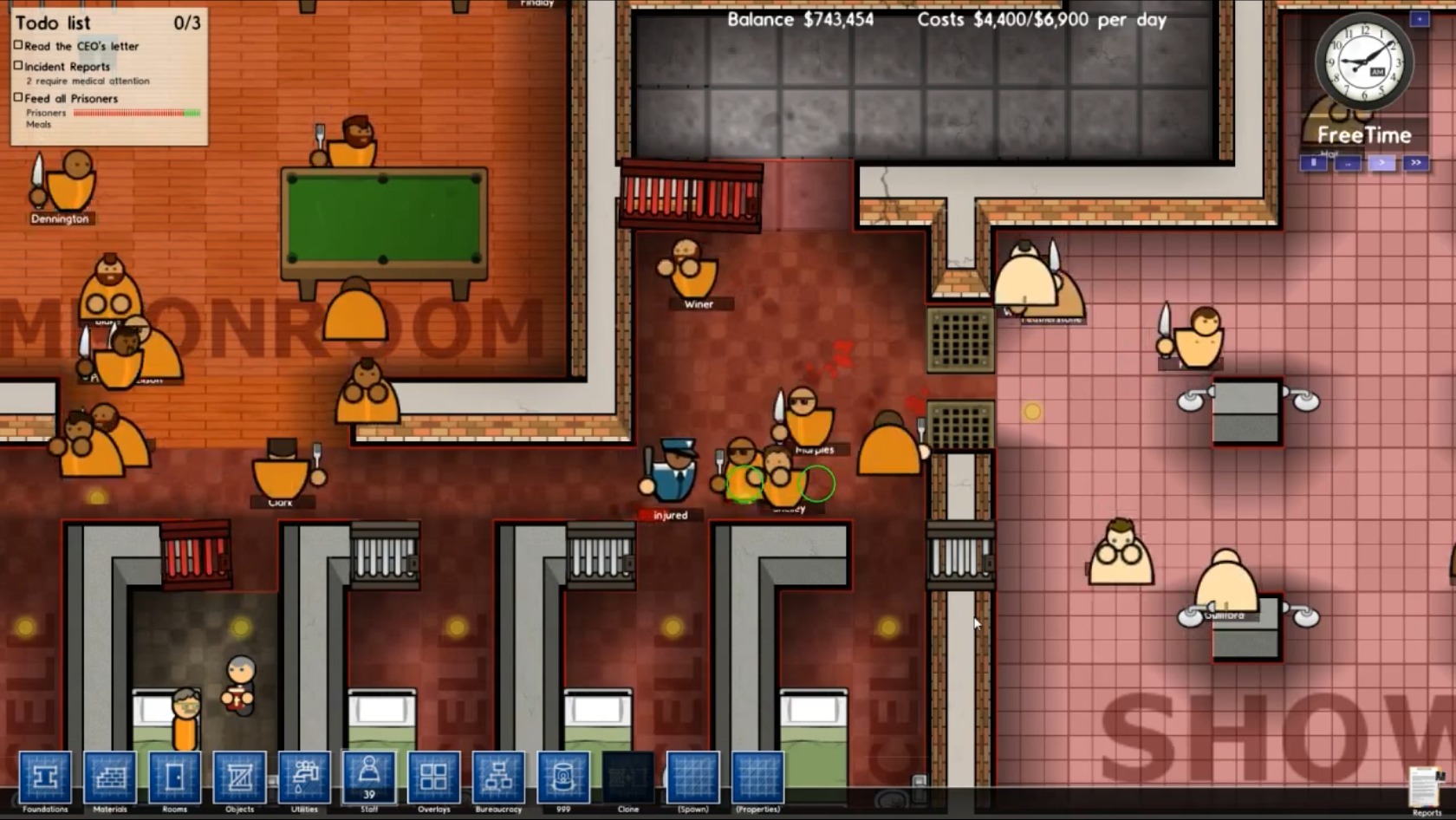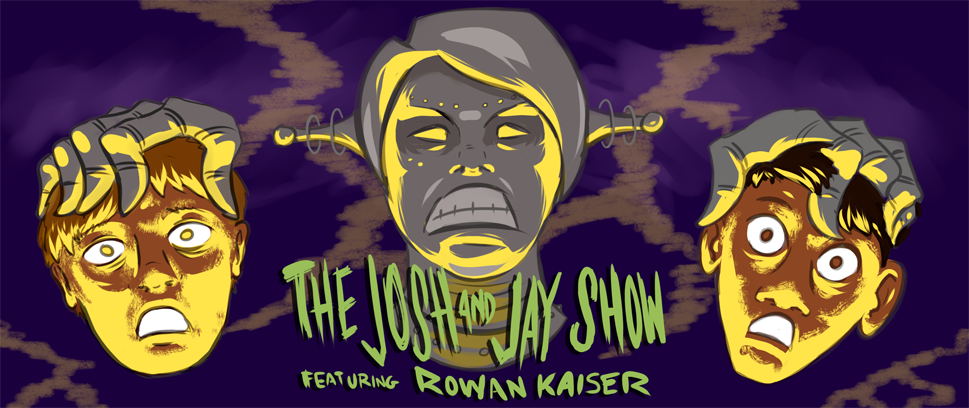
The Search for Answers in Prison Architect
It rained the whole of last Friday.
This downpour came as a relief; Singapore is so known for its sweltering heat all year round that any reprieve from the sun’s blistering rays was a welcomed one. We no longer had to trudge out onto the streets and get our clothes uncomfortably drenched in sweat. Instead, we were greeted by a cool, albeit overwhelming gust of tropical storm.
Yet, I would like to believe that the rain was just an outpouring of grieve for Prabagaran Srivijayan, a Malaysian sentenced to death for importing 22.4g of heroin into Singapore in 2014. His execution took place that morning.
///
When it comes to the war on drugs, Singapore was famed for being relentlessly impartial. All drug traffickers in possession of at least 15g of heroin are sentenced to death—and there is little exception to this rule. While some legal reforms have been introduced to reduce the use of capital punishment, the country still refuses to budge on the issue of drug trafficking, despite the increase of drug abusers in our shores.
These hardline policies are popular locally too. Many argued that such laws keep our country remarkably safe. Others are more insistent on retribution, as opposed to rehabilitation, for crimes. It’s okay to be hard on crime, they say. Only malicious crime-doers need worry, because innocents will never get into trouble with the law.
That is why I found Prabagaran’s sentence so disorienting. Swiftly arrested after two packets of heroin were uncovered in the Malaysian-registered car he drove into Singapore with, he had maintained his innocence for years. He insisted he wasn’t aware of the drugs as he had simply borrowed the car from an acquaintance, through the recommendation of a friend. Over the course of the investigation, Prabagaran even offered details about the duo to the authorities. Unfortunately, these leads weren’t pursued in greater detail, and these witnesses were never present at any of his trials. In the judge’s own words during one of the court appeals, here is why:
“The Central Narcotics Bureau has to assess the value and the viability of making any particular investigation in each case…for instance, it cannot be expected to traverse the globe to investigate merely because an accused person mentions the names of ten persons in ten different countries together with their contact numbers.”
In other words, it just wasn’t worth the effort. According to the state, there is no doubt that Prabagaran—as a condemned drug trafficker—had to go.
///

Of course, I never knew Prabagaran personally. I read about him vaguely on the news, but mostly through the internet and the work of local activists like Kirsten Han. But word of his death broke me. It was the lack of media coverage, or any sort of collective outrage at all, that made me wonder if anyone really felt that archaic laws like the death penalty were necessary. To me, capital punishment represents the unwavering belief in the infallibility of the justice system. It was the implication that second chances for innocents who may have been wrongly sentenced—much less ex-criminals who didn’t want to reoffend—were pointless.
After an emotionally exhausting workday, I went home and installed Prison Architect. I wanted answers. Justifications. There weren’t many videogames that discuss the death penalty, but the title—an incarceration simulator of sorts released back in 2015—attempts to tackle the subject, while framing it as a small but critical player in the twisted prison-industrial complex prevalent in America.
The videogame begins by directing you to build an electric chair for a prisoner on death row, who was convicted for murdering his wife and her lover. The instructions weren’t too difficult to follow: build a wall. Lay some cement. Install the chair and the cables that connects to the electrical supply. Inform the guards that the prisoner is ready.
Prison Architect differs slightly from resource management sims like Prison Tycoon and Roller Coaster Tycoon. Reducing the happiness and satisfaction of both prisoners and staff alike to a mere stat was easy; however, by introducing personal stories of its inmates in its tutorial, it instead chooses to address how the American prison system perpetuates a vicious cycle of poverty. It’s one that often results in recidivism, and is one that can quickly be profitable with a constant influx of prisoners. The videogame also hints at how the prison is merely a smaller piece of a larger system at work—one that sometimes feels like we, as ordinary citizens, have no influence over.

When the CEO and prison guards reminded me that any sympathy for the convicted is unnecessary, and I was just here to assist in the execution of a cold-blooded murderer, it felt unnerving.
They told me that the law had decided his fate long ago. I just needed to do a good job.
///
The trajectory of justice is often incomprehensible to a mere citizen like myself, and I still cannot fathom how Prabagaran’s death sentence was fair. I was aware that no amount of hand wringing would result in a different sentencing. Local activists have been campaigning for years, but the country didn’t even wait for his appeal in his own country–the Malaysian courts–to conclude, before sending him to the gallows. For years, I was led to believe that drug traffickers like him are an immediate threat to our nation’s well-being. Retribution must be swift. And yet…
And yet, I continue to be emotionally invested in the case’s outcome.
Introversion, the studio behind Prison Architect, insisted that they aren’t prison reformists, and they didn’t set out to make any sort of statement with the videogame. Upon the conclusion of the hours-long tutorial, players are free to run the prison as they please. Winning is completely subjective, as there aren’t any specific conditions for success. If you choose to prioritize profits over ethics, the prisoners may end up rioting. On the other hand, focusing on rehabilitation may cause the prison staff to be constantly exhausted and overworked. I mean, where’s the money going to come from?
In the real world, one country is known for being notoriously dreadful when it comes to managing prisons: the Netherlands. It recently revealed that it had to shut down five more prisons—on top of the 19 closed in 2013—while over 1,900 prison employees will lose their jobs. That’s because it doesn’t even have enough inmates to imprison. Things have gotten rather dicey, isn’t it? The country even abolished capital punishment back in 1870.
///
I honestly don’t have a beautiful conclusion on this piece. Nor do I have any emotional refrains about the sanctity of life. A man who might have been innocent of a crime had passed on, yet life still goes on for the rest of us. It seems almost outrageously unfair. But when it comes to the death penalty, I’m pretty sure most people can’t say that they have become all the better because of it.
The rain did let up a little later that Friday night.





